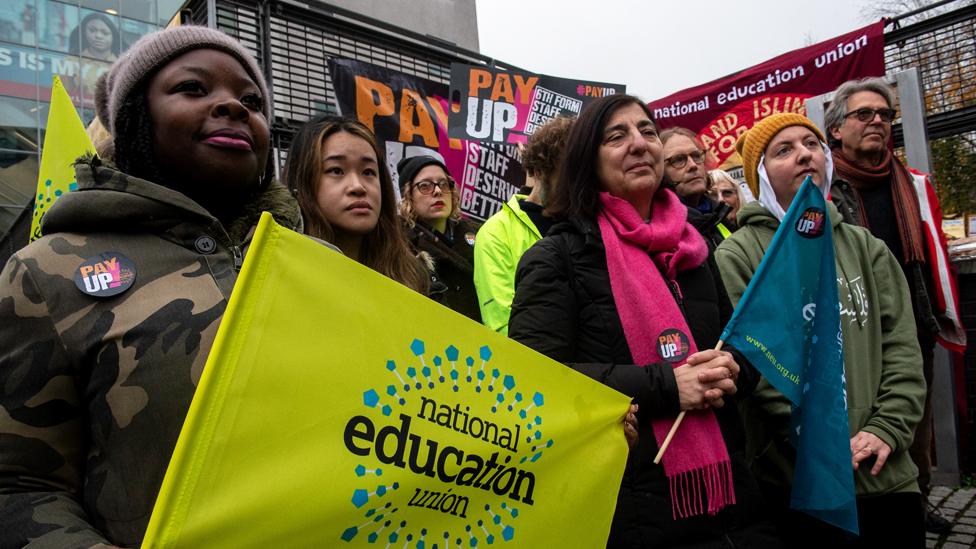Teacher strikes: 'Deciding to close our school has been horrible'
- Published
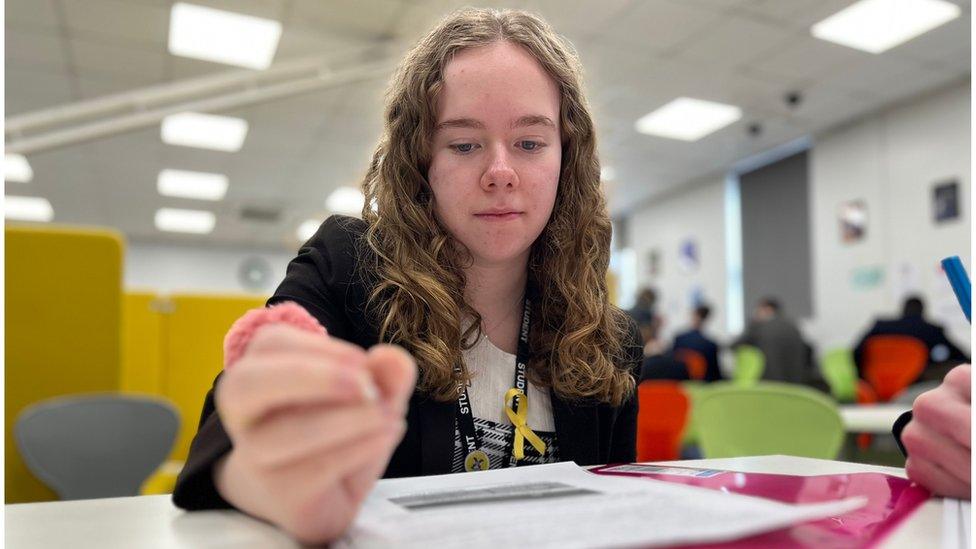
Tia and other Year 12 students will be taking mock exams in the school hall on Wednesday, when teachers are going on strike
In the Sixth Form study room, Tia is twizzling a pink fluffy pen around in her hand. She is nervous about her mock IT exam next week.
"This is my one practice, and then I've got the real one," she says.
On Wednesday, she will be among the only pupils attending Wales High School in Rotherham, which is due to close because of a staff walk-out over pay.
The decision to close has been "horrible", says head teacher Pepe DiIasio. Only Year 12s taking mock exams, vulnerable pupils, and the children of critical workers will be expected in.
"Students have missed an awful lot of time in the last three years, and we don't want them to miss any more," he says.
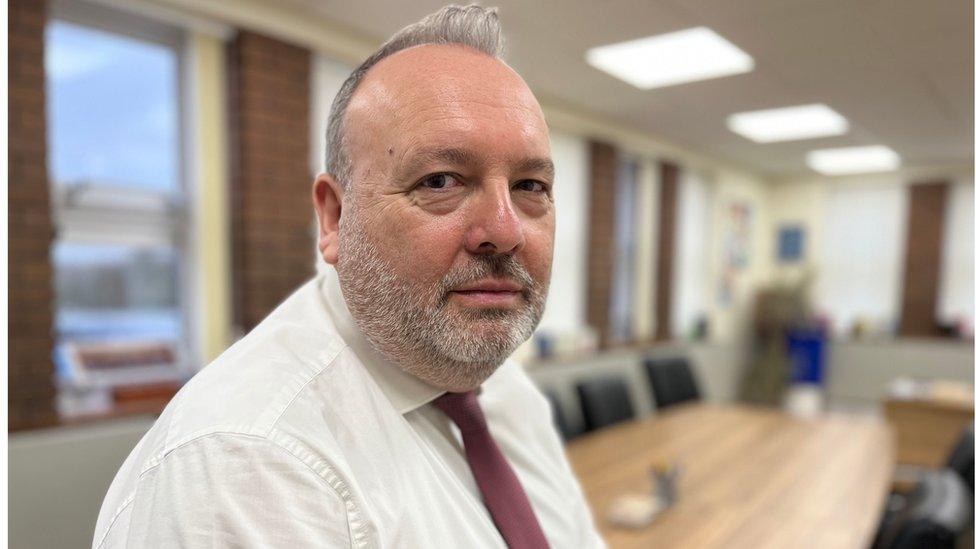
Pepe DiIasio says he has heard the strikes described as "10 years in the making" because of teachers' pay and conditions
Pepe's office, a short walk and a few flights of stairs from the study room, is the HQ of this hub of 1,900 pupils. He has been busy preparing for Wednesday - sending letters to parents, making sure those who have children on free school meals get funds for lunches, and allocating laptops to children who need them for online learning.
Some parents have criticised school closures on social media, arguing that families are fined if they keep their children out of school - but Pepe hasn't had any complaints like that.
Planning ahead is tricky because members of the National Education Union (NEU), which is co-ordinating the strike in England and Wales, don't have to tell their heads whether they will take part.
As the former president of the Association of School and College Leaders, Pepe is well aware of this. However, about 30 members of staff have told him that they won't be at work, and he estimates the total number could be more than 50.
"One of the gifts of Covid is that we're fully prepared for this sort of situation, and what we can do is move into a remote curriculum virtually straight away," he says.
Teachers on strike also don't have to set work to cover strike days. Here, it is up to senior leaders like assistant head teacher Hannah Feerick to prepare work for pupils to do at home.
"They'll just follow their timetable as they would do on a normal Wednesday," she says. "So if they have Maths first thing, then they'll do the Maths work for the first hour."
The school library will serve as a temporary classroom for pupils who are coming in - but Hannah won't know how many this will be until the morning itself.
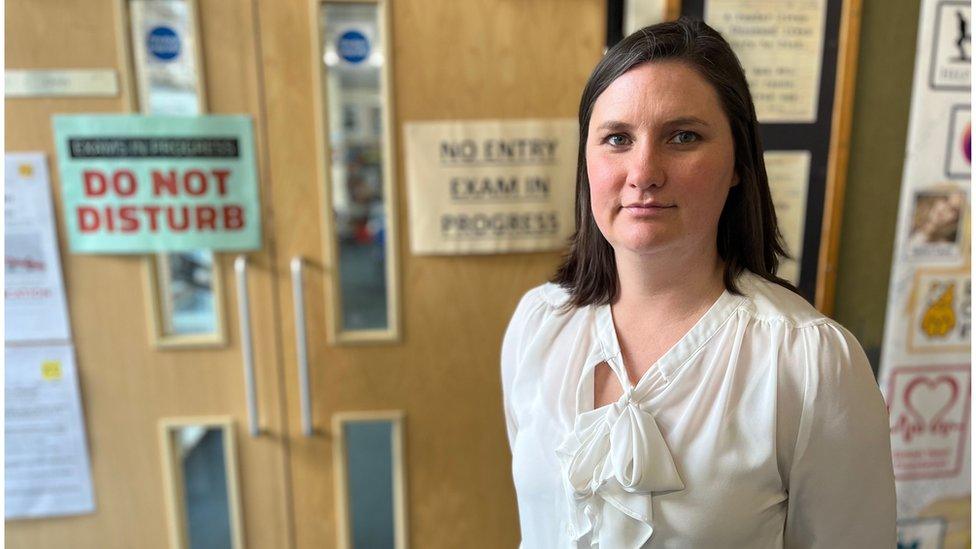
Hannah Feerick will be supervising pupils in the school library.
She hopes lessons can be learnt for further NEU strikes in February and March.
"Hopefully if we get something that works for everybody, then we can just pick that up and reapply it."
Downstairs in the science technician rooms, the chorus of "Nothing's Gonna Stop Us Now" is blasting out from a radio tucked behind a row of plants. This part of the school is a retreat for Jo Smethurst, the science resource manager, who spends much of her day marching between labs and checking the step count on her leopard-print smart watch.
Jo is not a member of teaching staff and won't be on strike, but she may not be able to work because of her own childcare issues. She says it has been "stressful" checking every morning for an email from her son's primary school about whether or not it will be closing.
"I'm trying to look around to see if I can get grandparents so I can get some childcare for that day. Or I will have to have the day off, or his dad will have to have the day off," she says - which could hit their income, as he is self-employed.
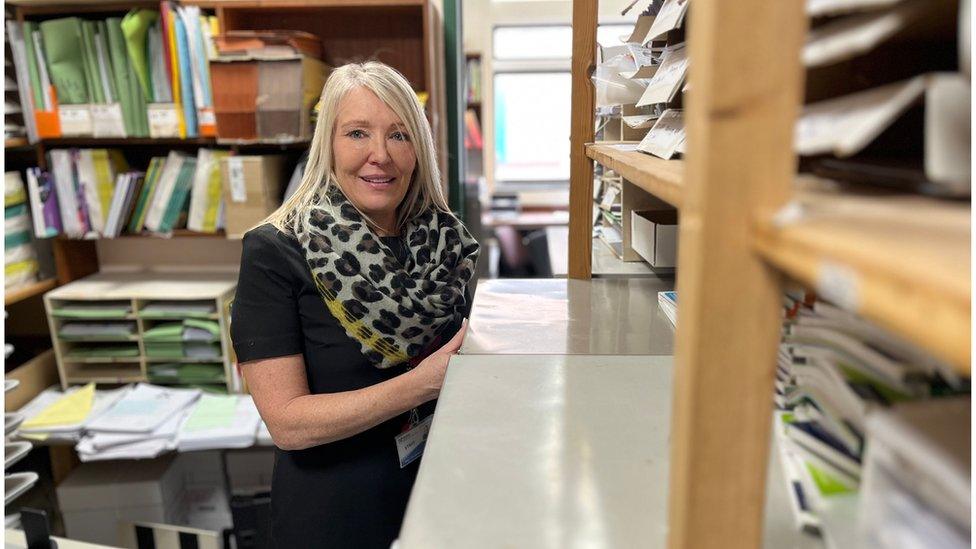
Managing the science technicians is among Jo Smethurst's jobs at Wales High School.
Despite her childcare jigsaw, she is broadly in agreement with the teaching staff going on strike, because of the rising cost of living.
"Fuel, gas, electricity - everything's going up," she says. "We want our wages to go up and teachers want their wages to go up."
Around the corner from Pepe's office, with a green pen in hand, Ross Napier is rattling through a pile of Year 13 Economics essays.
Ross represents NEU members in the school, and plans to strike on Wednesday. He left industry in the mid-1990s to teach because it was an "attractive profession", he says - but that has changed because of the "erosion of pay".
His partner is also a teacher, and they lived "happily on one-and-a-half salaries" for 12 years, while she worked reduced hours after having children. Then she went back full-time.
"We're worse off now in real terms than we were when my partner was working part-time," he says.
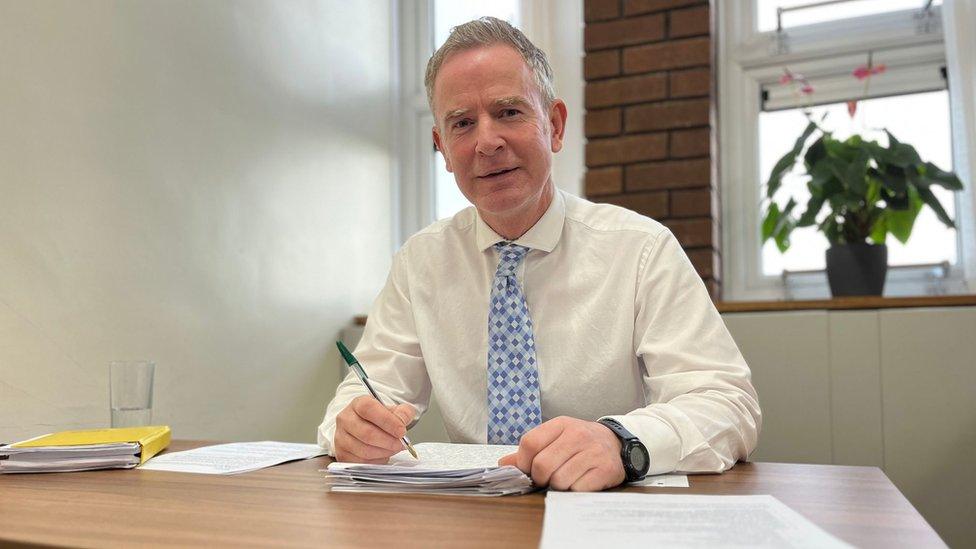
Ross Napier will be taking part in an NEU rally in Sheffield
Ross DJs at the weekends - house music, mostly - to help pay their bills and mortgage.
"The extra income allows me to stay in teaching when so many leave," he says. "I love the job."
Ross says he hasn't picked up on much chatter about the strikes among his non-NEU colleagues because "most teachers don't really have the time to go into the staff room". Last summer he had to give up a role as head of house, because he didn't have the time during the working week.
Most of his students will be taking exams this year, so for him, striking is a "massive decision to make", but he adds: "One day of strike isn't nearly as big an impact as the last 12 years of cuts."
Schools Minister Nick Gibb has told the BBC that the government is concerned about agreeing pay rises in line with inflation, which he said would mean embedding inflation into the economy.
The Department for Education, which has been in talks with teaching unions over pay, has advised that schools remain open for "as many pupils as possible" - and the picture will vary across schools in England and Wales. Strikes have already been taking place in Scotland, and teachers will walk out for half a day in Northern Ireland on 21 February.
Back in the study room, Year 12 student Oliver says he is happy that his geography mock is going ahead on Wednesday.
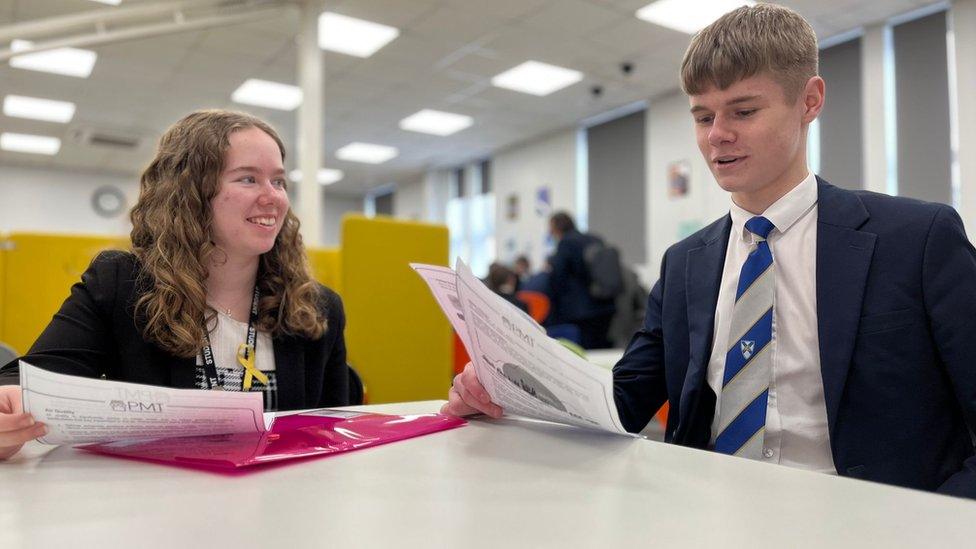
Tia and Oliver, both 16, were in Year 9 during the first Covid lockdown
"I've prepared and revised," he says. "If I'm expecting an exam next week, and it's the week after, it's another week that I've got to revise."
But for his brother, who is in Year 10, the strike day will mean a day back to learning at home - reminding him of learning during Covid.
"The further disruption is a bit worrying," says Tia. "At the same time, I feel like I need to support my teachers, because they are doing it for a good reason."


Have you been affected by issues covered in this story? Get in touch by emailing haveyoursay@bbc.co.uk, external.
Please include a contact number if you are willing to speak to a BBC journalist. You can also get in touch in the following ways:
WhatsApp: +44 7756 165803
Tweet: @BBC_HaveYourSay, external
Please read our terms & conditions and privacy policy
If you are reading this page and can't see the form you will need to visit the mobile version of the BBC website to submit your question or comment or you can email us at HaveYourSay@bbc.co.uk, external. Please include your name, age and location with any submission.
Related topics
- Published15 April
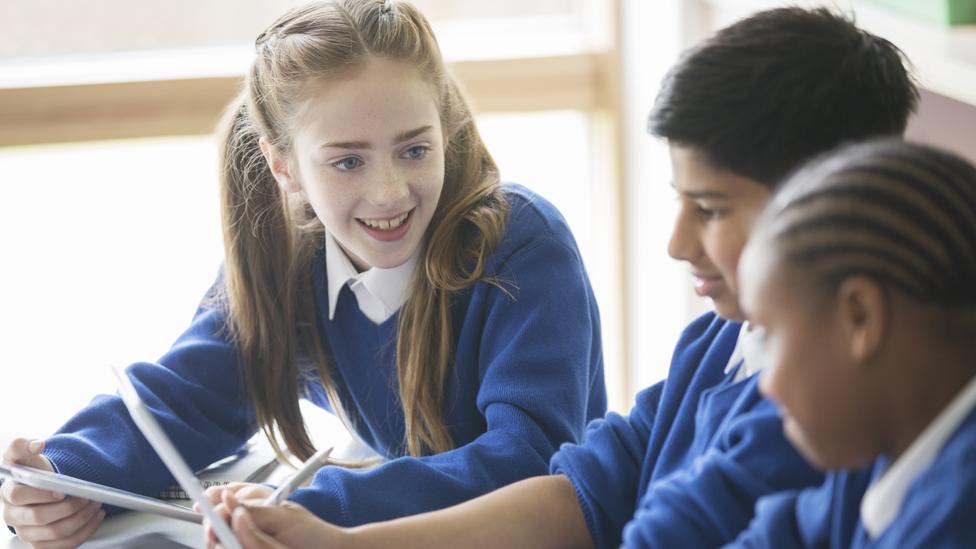
- Published16 January 2023
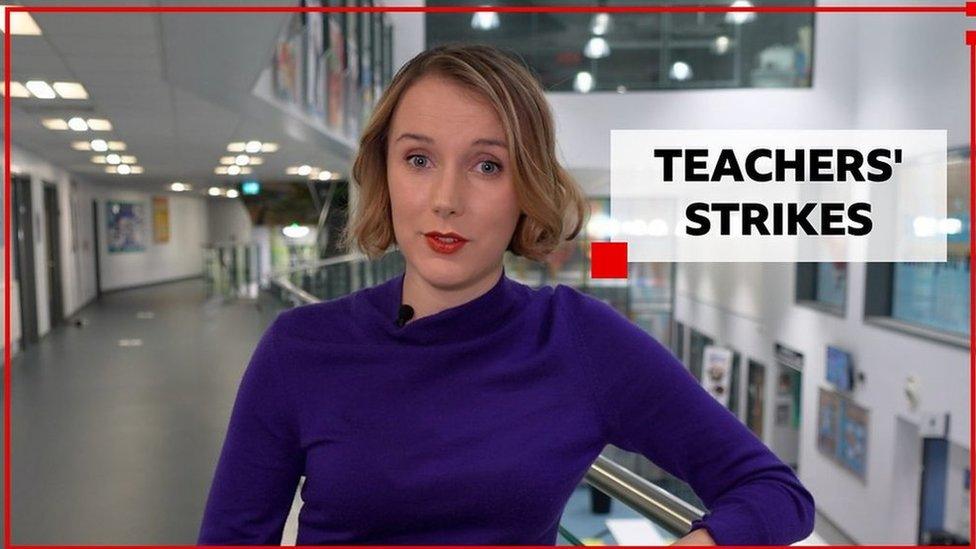
- Published1 August 2023

- Published18 January 2023
